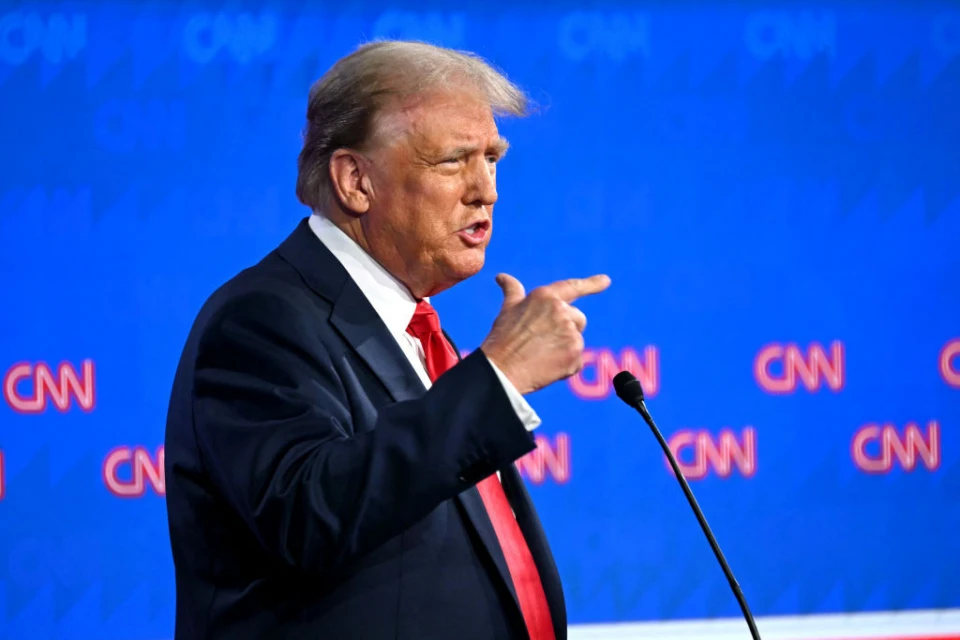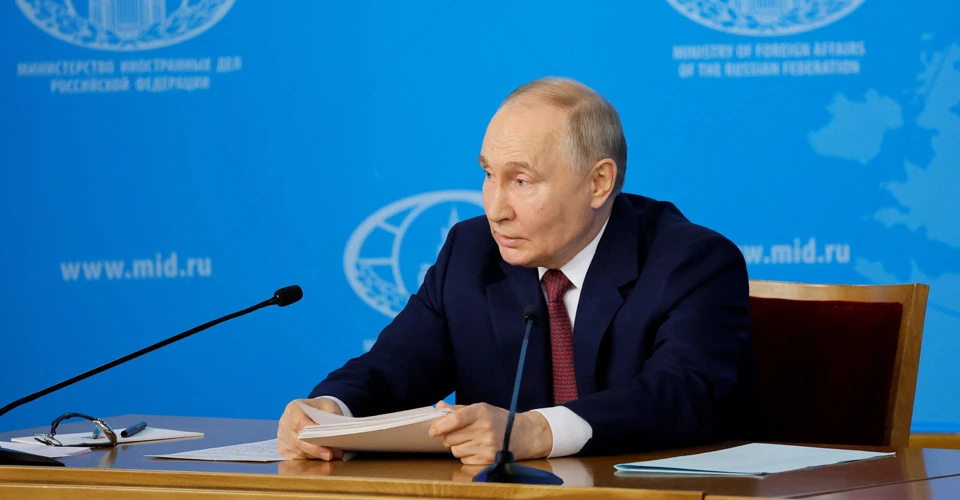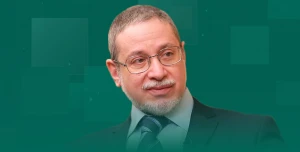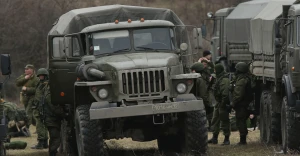
Putin wants a truce? It's a trap for Ukraine
Yesterday's barbaric attack on Kyiv and other Ukrainian cities once again shows that Putin's real goal is not a ceasefire, but Ukraine's surrender. He believes that in order to do so, he needs to shock the world with brutality. Ukrainians, on the other hand, are shocked by numerous so-called peace initiatives
Volodymyr Zelenskyy's statements about Russia's presence at the "second peace summit" are also confusing. After all, for the vast majority of Ukrainians, negotiations with Russia are tantamount to surrendering national interests and only mean postponing new aggression. Because Moscow's goal remains the same under any government: the destruction of the Ukrainian state and the Ukrainian nation. There is more than enough evidence of this in history and in the present.
The overwhelming majority of Ukrainians support the struggle to victory, that is, the restoration of the territorial integrity of our state, including Crimea and the occupied territories of Donetsk and Luhansk regions. According to Ukrainians, Ukraine should become a member of the EU and NATO so that future generations do not have to fight the same enemy.
Trump as a game changer for Putin
Why am I emphasizing these axioms? Earlier, I wrote about Putin's desire to conclude a truce today and on any terms. According to many commentators, this sounds too optimistic, as heavy fighting continues at the front, the Ukrainian Defense Forces are forced to leave more villages, half of the power grid has been destroyed, and aid from allies is coming too slowly.
We already know that Ukraine will not be invited to join NATO during the summit in Washington (July 9-11). This could affect the prospects of ending the war, as the Kremlin sees the Alliance's indecision as a chance to achieve all the goals of the "special military operation." Another concern is that if Trump wins the presidential election, there will be uncertainty about continuing support for Ukraine and challenges to his promise to "end the war in one day."

Photo: Getty Images
I will focus on the "Trump problem" because it directly relates to the Kremlin's attempts to conclude a truce today. Speaking at a press conference in the Kazakh capital Astana (July 4), Putin said: "The fact that Mr. Trump, as a presidential candidate, says that he is ready and wants to stop the war in Ukraine, we take it quite seriously."For the Russian dictator, Trump's return to power is a real game-changer—a factor that will alter the rules of the game. Fortunately for us, not everything will be so simple, and once again the "tsar" (Putin - ed.) may make a fundamental mistake in his calculations.
Let's start by stating that the year is 2024, not 2016, when Donald Trump shocked Europe and the world with his words and actions. Over the past four years, the United States, the EU, the entire West, and Ukraine have done a lot to prepare for the possibility of his second term.
I see no reason to be afraid of another one-on-one meeting between Trump and Putin, during which they could allegedly divide the world into two as a result of a "new Yalta."*
For several reasons, Trump will no longer be able to blackmail Europeans with the prospect of America's withdrawal from NATO ("getting out of Europe"). Formally, this was initiated to encourage Europe to invest more in its own security, but in reality, it was a convenient excuse to withdraw from the Alliance and allow Russia to dominate Europe. The calculation was that Moscow would then break its alliance with Beijing, which remains Trump's main enemy and a key geostrategic competitor of the United States.
Why won't the US leave Europe?
First, Europeans are ready for such a scenario. They are slowly but steadily increasing their defense budgets, restoring the products of the military-industrial complex and helping Ukraine. Almost all states in Europe have realized that our resilience and determination to win is the most reliable guarantee of their own security.
If Trump suddenly tells Europeans that "America is leaving," he will hear in response: "Well, it would be easier to take care of our common security together with the United States, but we are ready to take care of ourselves." Trump has nothing to say to that.
Secondly, the phrase "get out of Europe altogether" would mean that Europe would automatically become America's competitor from being an ally with the potential to become an adversary. Emmanuel Macron stated this most clearly in his April speech at the Sorbonne University. He warned that Europe could die, and to prevent this from happening, Europeans should take care of "a reliable European defense" and European preferences in the purchase of military equipment.
And this is logical, because when allocating large funds for defense and armaments, it is better to take into account the interests of their own producers rather than feeding "Uncle Sam."
Thirdly, the former American president and his "advisors" fail to understand that Ukraine and Europe as a whole are not like Afghanistan, which can be abandoned without significant consequences for the United States, its role in the world, its own strength, and security. While Europeans (and Ukrainians) greatly need America's support, an allied Europe is equally, if not more, essential to the United States. Americans are not so strong that they can afford to multiply competitors and enemies indefinitely.
Fourth, there are no arguments for the United States to withdraw from NATO and stop supporting Ukraine. After all, an attempt to "tear Russia away from China" at the expense of Ukraine, NATO's eastern flank, and the whole of Europe ("new Yalta") cannot be a serious reason for this. The real goal of such an operation is to strengthen Trump's personal power, destroy liberal democracy in the United States, abandon existing alliances, and change the world order to one dominated by a "club of autocrats."
Trump and some of his supporters use propaganda about "excessive aid" to Ukraine at the expense of "ordinary Americans." This is a lie, because the vast majority of these funds are spent on the American military-industrial complex. In fact, the question for Americans is this: are they willing to pay for the restoration of the Russian empire?
Trump's freedom of maneuver is very limited
This dilemma is best illustrated by the situation of those in Europe who "pray to Trump," particularly Hungary under the leadership of Viktor Orban. A US withdrawal from NATO would mean a radical change in its security situation and the necessity to seek new alliances.
Will all EU countries choose the European model of collective security (which will certainly emerge), or will some align with Russia and China? After Orban's recent trip to Moscow, it became clear that his "ideological fraternization" with Trump is just a screen to cover his real fraternization with (dependence on) Russia.
Trump's attitude toward NATO and Ukraine is being closely watched by America's Southeast Asian allies: South Korea, Taiwan, Japan, the Philippines, and Australia. Taiwan is aware that it is the first target of Chinese imperialism, which is progressing at an accelerated pace.
During Trump's first term and under Joe Biden's presidency, America has done much to reassure its Asian allies of the reliability of its security guarantees and its readiness to provide military response to aggression from China and its North Korean vassal. The "US withdrawal from Europe" and the refusal to support Ukraine will nullify these guarantees. And there is no empty space in international politics. The United Kingdom has already offered South Korea its own security guarantees.
Two key conclusions can be drawn from the analysis of the US strategic situation (some of its main elements) at the beginning of Donald Trump's likely second term in office. First, the freedom of geopolitical maneuver for Joe Biden's successor is limited, as the destruction of the existing system of alliances benefits only Russia and China. Second, the American state system is robust enough to recognize this threat and successfully counteract it.
In addition, blackmail by breaking off allied relations between the United States and Europe will not work. It will automatically meet with organized resistance from most European states, especially the strongest ones: Britain, France, Germany, and Italy. This will not be accepted by the key US allies in Asia either. Thus, possible blackmail will be just a bluff.
Ukraine will not be left face to face with Russia
Now about Ukraine, the conditions for peace, and Russia's unbridled desire for a truce. If Trump wins, it's anticipated he may express a desire to end the war "in one day," which would delight Putin and make him very “interested.”. However, what concrete steps should Ukraine and the rest of the world expect?
It's evident from statements by members of Trump's entourage (and those aspiring to be part of the new administration) that there is no clear "peace plan" for Ukraine. Furthermore, even Trump's own ideas on the matter remain unclear. Loose suggestions about the price Ukraine must pay for Putin's "generous consent" to peace should not be taken lightly. Putin has explicitly outlined his demands: Ukraine giving up Crimea, accepting the annexation of parts of Donetsk, Zaporizhzhia, Luhansk, and Kherson regions, adopting a non-aligned status, agreeing to limit the size and armament of the Ukrainian Armed Forces, and what Putin terms as "denazification."
Why are these conditions impossible to accept? Because a significant part of Ukrainians and the military of the Ukrainian Defense Forces will not agree to this. And this is a decisive factor in our future. Only politicians who are detached from reality do not realize this.
I will state a thesis that may be surprising to many. Ukraine will not be left face to face with the aggressor. The results of the recent elections to the European Parliament, the elections in Britain and France make it obvious that the Republican administration's likely attempt to force Ukraine to peace on Russia's terms will be met with strong resistance from most European members of the Alliance.
Macron's well-known statement about the potential deployment of French troops in Ukraine was directed at two audiences: Putin and Trump, along with his supporters in the Republican Party. In February of this year, efforts were made to hinder US supply of weapons to Ukraine. Macron and the French army general staff assessed the implications of losing Western assistance to Ukraine and reached the following conclusion: the EU and NATO's eastern flank countries would become targets of Russian aggression. This poses a direct threat to the national security of the French Republic.
Why Putin wants a truce
Europeans, especially those from the eastern and northern parts of the continent, are confronted with a choice: whether to exert pressure alongside the Russians and Americans on Ukrainians, or do they continue to fight against Russia together with Ukrainians? They will surely choose the second option.
The reasons for this potential decision by Europeans are clear: it's better to have a reliable partner in hand than to rely on uncertain promises. Ukraine's defense forces are currently holding back Russia’s offensive and have a real opportunity to defeat it with the support of Western partners. If Ukraine is deprived of this support, it may lose, leading to Russian aggression against NATO's eastern flank states. There is no guarantee that Trump's America will come to their defense.

Photo: reuters
I regard this scenario as unlikely. Since Trump is unpredictable, he may take various "non-standard decisions" in international politics. And these decisions may contradict the basic interests of the United States and its allies. However, the US and NATO decision-making system has many safeguards against such unpredictable political figures.
Trump's belief that he can end the Russian-Ukrainian war with a single decision is a problem for us. He doesn't know how to do it, but he is convinced that a way will be found, if only there was a desire. But the desire of even "Trump himself" is not enough.
The successful vote in the US Congress to provide $61 billion in aid to Ukraine came as a real shock to Putin. The decision was supported by half of the Republican congressmen, and two-thirds of the Senate voted in favor. Putin was confident that Trump had full control of the Grand Old Party (as the Republican Party is called) and that his most loyal supporters in Congress would block the adoption of the aid bill.
Today, Russia cannot be sure of anything regarding Trump and his administration. This administration may reject the security agreement with Ukraine and reconsider its support for our country's NATO membership. Or it may not, thus confirming that Ukraine's victory is a policy goal for the United States as well.
That's why Putin is in a hurry. He aims to solidify the current state of occupation and secure Ukraine's consent to this arrangement. Putin hopes that this will prompt Trump to "end the war in one day" and spur further negotiations. Putin sees no other significant trump cards on the frontline, in the economy, or on the international stage at present.
The task of the Ukrainian government is to refrain from agreeing to any ceasefire or negotiations that involve the aggressor, during which Putin might feel emboldened to negotiate from a position of strength.
*The Yalta Conference, held from February 4 to 11, 1945, was a significant World War II meeting attended by the three principal Allied leaders: President Franklin D. Roosevelt of the United States, Prime Minister Winston Churchill of the United Kingdom, and Premier Joseph Stalin of the Soviet Union. They convened in Yalta, Crimea, to strategize the final defeat and subsequent occupation of Nazi Germany.
About the author. Mykola Kniazhytskyi, journalist, Ukrainian MP
The editors do not always share the opinions expressed by the blog or column authors.
- News













































